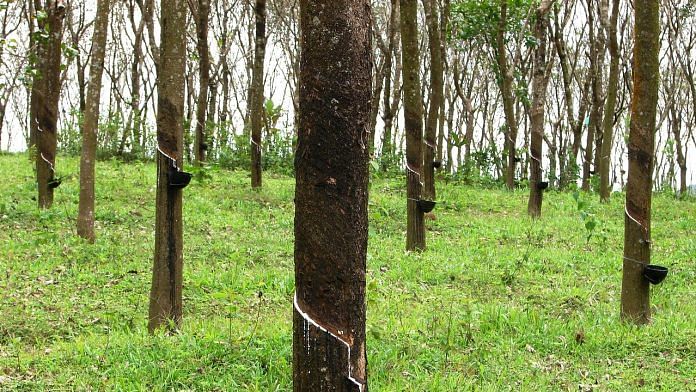Ecosystem degradation is both a huge problem and a big opportunity.
It affects the well-being of 3.2 billion people and costs the world about 10% of its annual gross product, according to the United Nations. But natural regeneration of overexploited ecosystems, for example by planting trees and plants, could have a wide-reaching impact on both people and the planet.
At the 2014 United Nations Climate Summit, nations committed to restore 150 million hectares of forest by this year and 350 million hectares by 2030. So far, progress has been slow, according to the UN’s Food and Agriculture Organization.
But many projects and initiatives across the globe are working to change that. And among them is Dutch start-up the Land Life Company.
Tree incubators
Globally, 2 billion hectares of land is degraded, according to Land Life Company co-founder and CEO Jurriaan Ruys – that’s an area the size of the United States and China combined. “This is a result of fires, or intense deforestation and abandoned agricultural land,” he says.
Ruys wants to help restore these 2 billion hectares by establishing sustainable forests that, alongside helping to reverse the effects of climate change, provide a livelihood for local people.
How? With a pod that cocoons young trees and helps them grow.
The 100% biodegradable tree incubators hold 25 litres of water to irrigate the plants in the critical first few months as they grow. The cocoon prevents evaporation and stops weeds stifling the trees’ growth.
It also has a protective shield that stops animals and birds eating the young plants and shelters them from harsh heat and dry winds.
The company selects tree species that are both hardy and suited to the locations where they are planted. Within six to 12 months, it says, the young trees are ready to thrive independently and push their roots down to sub-surface soil moisture to sustain them.
Also read: Climate-conscious businesses can create 395 million jobs by 2030, says WEF report
Global hope
The cocoon has already been used in countries ranging from the United States and Mexico to Spain and Cameroon. It is currently being used to recreate Sudan’s tree cover in a project jointly run by the country’s forestry commission and the United Nations Refugee Agency (UNHCR).
In 2019 alone, the project planted 1 million trees and several million more are planned for 2020. Additionally, a tree nursery has been established, where Land Life’s cocoon will help grow 200,000 saplings a year.
As well as restoring the natural environment, the project provides employment for local people and refugees fleeing the conflict in South Sudan. Refugees used to trek eight hours to fetch firewood. But the new forest means it can be supplied locally, says UNHCR’s Imadeldin Ali.
“Our plan this year is to set up woodlots or smaller forests around each of the nine camps in White Nile state to replace the trees cut down by refugees over the years,” says Ali.
Future solutions
The Land Life cocoon has been named as one of the Global Cleantech 50 to Watch Innovations, which recognize start-ups that are innovating to combat climate change.
The company is now developing artificial intelligence and blockchain solutions to add to its armoury of technology tools, which already includes the use of drones and satellite imagery to decide where to plant trees protected by its cocoons.
The impact of such projects could be huge. The United Nations says that restoring 350 million hectares of degraded land between now and 2030 could generate $9 trillion in ecosystem services and remove up to an extra 26 gigatonnes of CO2 from the atmosphere.
The World Economic Forum has launched 1t.org to support the UN and other organizations working to conserve and restore forests. The global initiative aims to unite governments, businesses and non-governmental organizations to help grow, restore and conserve 1 trillion trees around the world.
Douglas Broom is Senior Writer, Formative Content
This article was originally published in the World Economic Forum
Also read: Want to stop the next pandemic? Start protecting wildlife habitats






